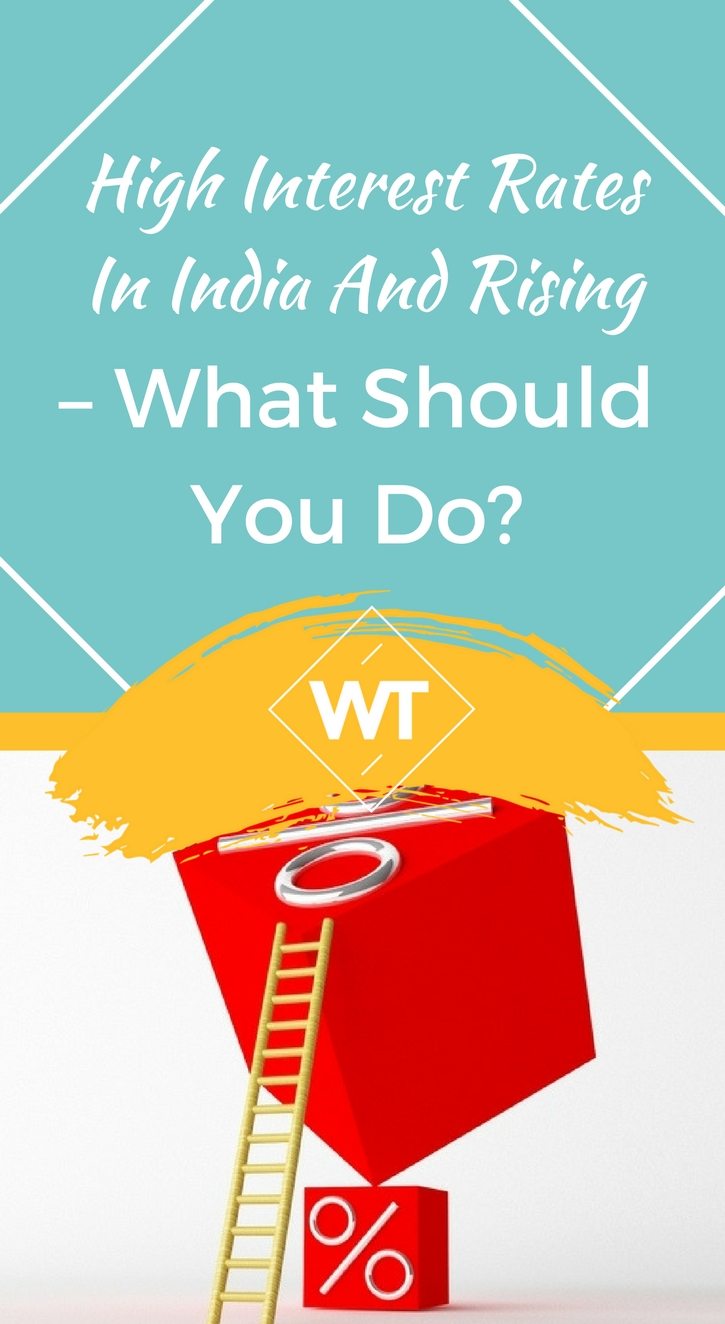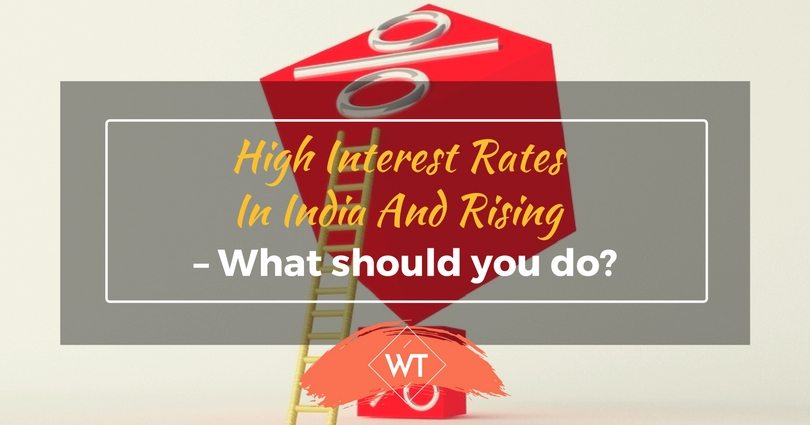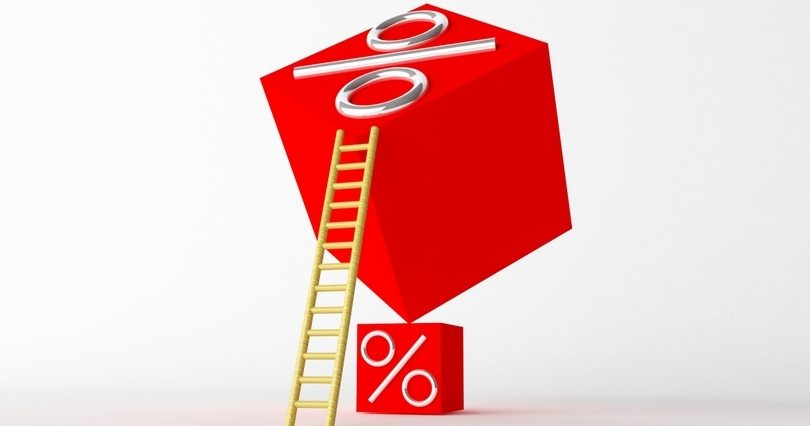High Interest rates in India and rising – What should you do?

Looking at the current scenario, Reserve Bank of India is raising interest rates whenever the policymakers meet to review of India’s Credit policy. The upwards pressure is caused by rampant inflation and RBI action is impacting the economy quite negatively. Even after increasing interest rates so many times, the government still failed miserably to control inflation hovering around 9% which is uncomfortable for any govt or for any growing economy.
The high interest rates have caused the EMIs to go up by 25-30% in the last one year which is making the situation uncomfortable for most retail consumers.
Take for example Neeraj from Bangalore. Neeraj has taken a house loan of 25 Lakhs @ 9% two years back in 2009, but now feels extremely uncomfortable when he pays an EMI which is 20% higher than the EMI which he used to pay in 2009 when he took a home loan.
There are several other problems which a consumer faces when interest rates start to move high. This article would discuss about some points which retail loan borrowers like Neeraj need to take care while dealing with the rising interest rate scenario.
Bargain with your banker
The first thing which one need to do in a rising interest rate scenario is to go online and check their loan account and check the number of EMIs left to be paid & if you have opted for a floating rate, don’t be surprised if your number of EMIs gets increased by a few months or may be by a few years. In such a case, negotiating with your lender becomes a smart option.
Some private banks and small banks do allow their borrowers to refinance the loan at lower rate to retain their customers by paying a small refinance fee.
By paying some refinance fees, you can bring down rising interest rate on your loan. But there is always some fees attached with this exercise. Banks generally charge 0.25% as a processing fee to reduce interest rates by 1-2% as per the case.
Gold becomes a important hedge
RBI increases interest rates to check rising inflation. As per the rule of economics, Gold acts as an important hedge against inflation. Tangible assets like gold and silver tend to perform well in such rising interest rate scenario and when the inflation is at its peak.
So investment in precious metals like gold should be done in rising interest rate scenario which could fetch you better returns vis-a-vis equities & fixed deposits. Don’t burn your fingers by investing in risky assets in such situations.
Refinancing your debt
If you are unable to get your high interest rate reduced from your banker you may consider option to refinance your debt. But this option would only work in your favour if you are paying an interest rate more than the market rate.
But that also requires a lot of hassle and a lot of paperwork and can result into 2% penalty with your existing banker or financer. So keep in mind all these factors before going for a refinance option
Reduce your Exposure to Risky assets
The best way to benefit from rising interest rates is to cut exposure to medium-and-long-term debt funds as well as equity markets. At the same time, shift some assets into low debt sectors such as FMCG & Pharma. In rising interest rate scenario, conservative instruments like bonds, fixed deposits tend to pay you more than risky assets like equities which tend to over-react to the situation and generally trade weak in such circumstances.
We can take the example of 2008 crash when inflation rate was high, interest rates were at its peak and markets crashed from 21000 levels to 7500 intraday levels. And during those times, it was interest rates with fixed deposits which gave 10% returns
Increase in Savings Account Interest Rate
Finally a sigh of relief for retail investors when RBI deregulated savings account interest rates. High interest rates have pushed Savings account interest rates up from 3.5% to 7% for some banks. This means the customer will get higher interest rate on their cash lying in the saving bank account.
This will have a huge impact in the long run. The money which used to get double in 20 years @ 3.5% interest levels now would double in less than half the time.
Conclusion: Relating it with Current Situation
Let’s relate the above points mentioned with the current situation to help you understand in a better way. Looking at the current scene, inflation is high at 9%, so to control inflation, the government is raising interest rates since March, 2010. As a result gold has outperformed all asset classes and given a stunning return of over 30% in past one year.
Investments in assets like equities have become risky and equity markets have given negative returns in most of the stocks in past one year. Adding to it, investing in FD have become more suitable which is fetching 10% per annum assured return with most of banks and other lending institutions.
So avoid investing in risky assets and invest in defensive bets like FMCG, precious metals like Gold or look to put your money in Fixed deposits which will fetch you assured returns.









Leave a Reply